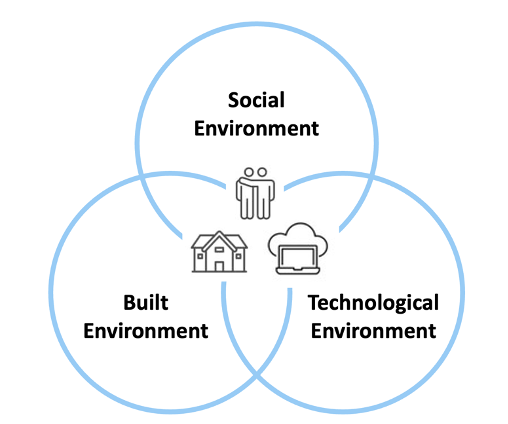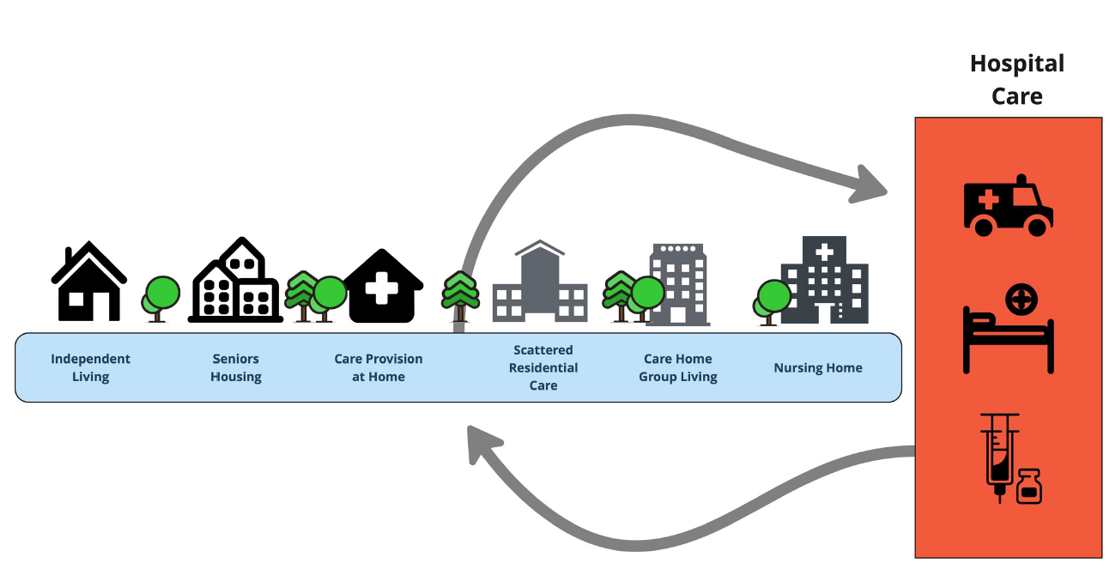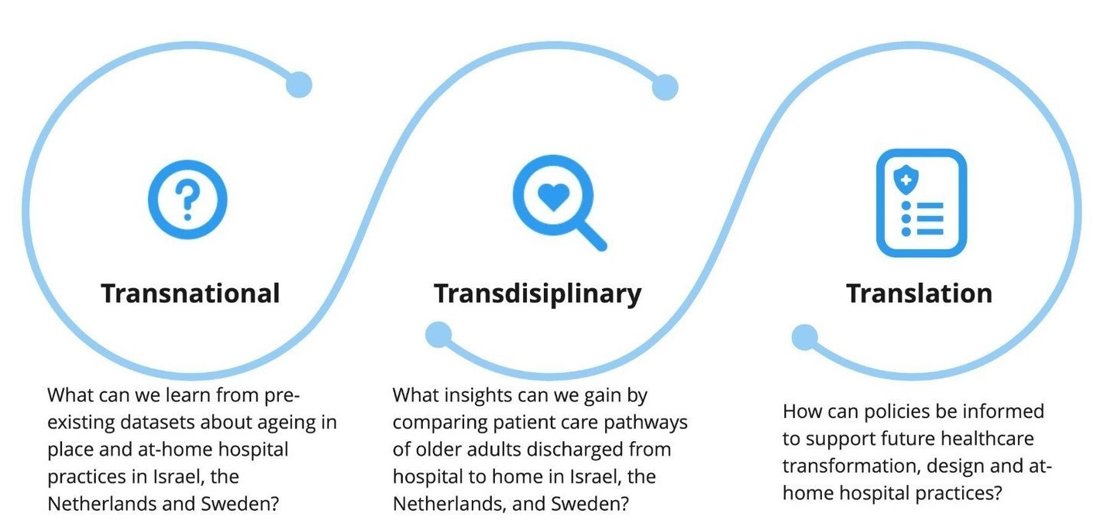Project background
Ageing in place is an increasingly adopted policy allowing older adults to live independently in their own homes. Meanwhile, as a part of a global transformation of hospitals, overnight hospital stays will no longer be the standard of care in the near future. It will be increasingly common for inpatient hospital-level care to be provided only for acute and critical care patients. All other types of care will be provided at home and early patient-discharge to the home environment will become more frequent. Common features of at-home hospital care include continuous physician and nursing care, medication administration, remote monitoring, video communication and point-of-care testing. However, for older adults ageing in place, the care pathway between the hospital and the home can be complex and impact well-being. This scenario is especially true when aspects of the home environment are not equipped to meet the healthcare needs and preferences of older adults:
- The built environment (the housing situation of older adults)
- The social environment (informal and formal caregivers, family, friends, neighbours)
- The technological environment (digital technologies used to monitor patient outcomes, web-based interfaces, and artificial intelligence)

Goals
Ageing Right Care(fully) (ARC) is a transdisciplinary, transnational research project which explores and maps an understanding of the care pathways between ageing in place and hospitalization of older adults. The project aims to (re-)design ways in which hospital care is delivered in the home situation of older adults, considering the crucial role of the built, social, and technological environment. The project is executed in the Netherlands (Western Europe), Sweden (Scandinavia), and Israel (Middle East), with the goal to learn from each other about at-home (hybrid) hospital care for older adults. These countries are suitable to be compared due to their growing ageing populations, yet distinct healthcare systems. The project aims to address the following research questions:
- What are the comparative ageing demographic structures and policies that support the care of older adults ageing in place?
- How can built, social and technological environments intersect and support the hospital-to-home care pathway of older adults?
- How can ageing in place, healthcare policy and home-based hospital care be improved for older adults of the future?

Phases
To answer the research questions, the ARC project applies three phases:
- The first phase will compare each country's population and policy structures relating to ageing in place and hospital discharge. We will learn from large-scale existing datasets and involve hospital care innovators to better understand and re-imagine the policy landscape for ageing in place and at-home hospital practices for older adults.
- For the second phase, we will use a citizen science approach to explore the patient journeys of older adults living in each country through the perspective of the older adult, caregivers, and care professionals.
- For the third phase, we will explore the synergies between the knowledge gained through phases one and two and mobilize the knowledge into policy recommendations and implementation guidelines.

Source:
Sturge, J., Nordin, S., Pilosof, N. P., Vogt, T., Janus, S. I. M., Ludden, G., Helder, R., Kylén, M., Zimlichman, E., & Glazer, J. (2025). How to age right and care(fully) at home? A protocol for a multistage comparative study of ageing in place and hospital at home care across three countries. BMJ Open, 15(e096385). Doi: 10.1136/bmjopen-2024-096385.

